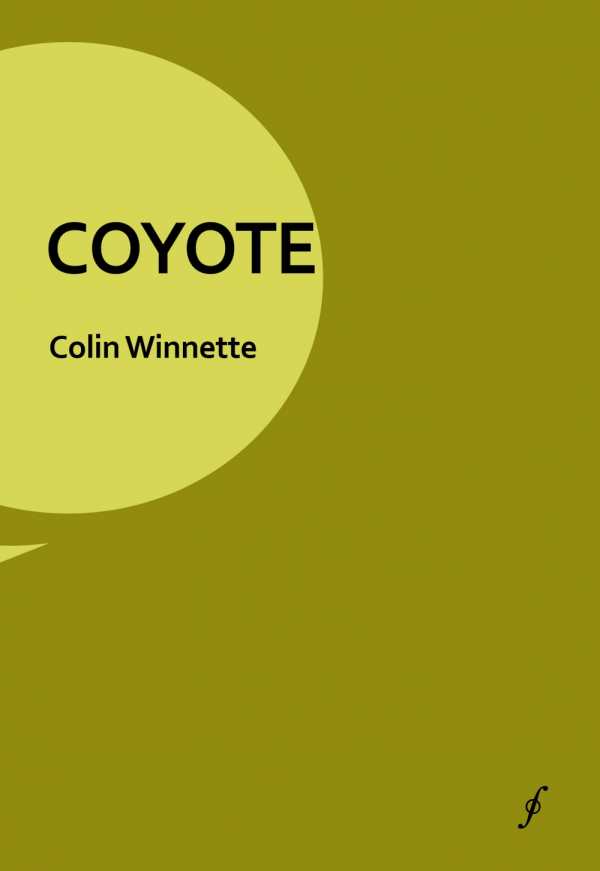Coyote
Spare prose boosts the psychological experience of this snapshot of grief and memory.
Colin Winnette’s Coyote provides an intimate look at a child’s disappearance, told from the fragmented perspective of a distraught mother. Winnette is an associate editor for the literary journal PANK, and his book Fondly: Two Novellas was named one of Salon’s best books of 2013. In Coyote’s 96 pages, he continues to demonstrate his expertise in the often-ignored hybrid category between novel and short story.
Winnette’s prose is spare, lean, and vicious. In just a few lines, the framework for the story is clearly and compellingly set: “I’ve told the same story over and over again, to the police, to the reporters, to the prep-interviewers and interviewers and celebrity guests and you name it. I tell the same story every time: we put her to bed, and when we woke up she was gone.”
The story unfolds in short one- and two-page entries, replete with failings of memory and expressions of grief that paint a fully believable picture of the grieving, yet still hopeful, mother. The uncertainty of what happened to her daughter tears the mother apart, and it’s this unraveling—of both the character and the mystery itself—that will have many readers plunging forward to finish the book in one sitting.
The shortest entries, including some with just an isolated sentence or two on a page, are made more forceful by the expanse of white space surrounding them, a tribute to Winnette’s vision and the book’s design. The desperation of the mother is palpable as she pins her hopes on a TV talk show that sometimes profiles lost children: “I called for weeks and no one answered. It was always a machine. There must have been some glitch on their end. So, I called. And called.”
Although it’s a slim book, Coyote is a perfect example of less being more. Winnette has created an experience in which the reader is led through the labyrinth of a disturbed woman’s mind, unforgettably.
Reviewed by
Peter Dabbene
Disclosure: This article is not an endorsement, but a review. The publisher of this book provided free copies of the book to have their book reviewed by a professional reviewer. No fee was paid by the publisher for this review. Foreword Reviews only recommends books that we love. Foreword Magazine, Inc. is disclosing this in accordance with the Federal Trade Commission’s 16 CFR, Part 255.

